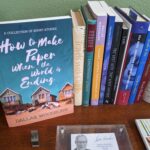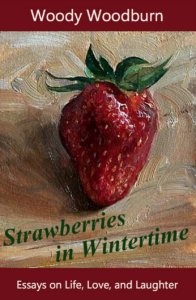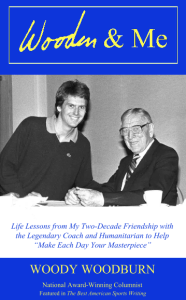 My great friend Dan had a basement that was a boyhood wonderland with a pinball machine, Ping-Pong table, slot-car racetrack, dartboard, Rock ’Em Sock ’Em Robots, board games and more.
My great friend Dan had a basement that was a boyhood wonderland with a pinball machine, Ping-Pong table, slot-car racetrack, dartboard, Rock ’Em Sock ’Em Robots, board games and more.
Dan not only knew how to expertly shake the pinball machine without a “tilt” registering, he also had a habit of tilting other games in his direction. That is to say he playfully cheated.
“My house, my rules,” Dan would announce and claim a do-over when his HO-scale Corvette went around a curve too speedily and flew off the track; when his dart wildly missed its mark and ricocheted off the cinder-block wall; when he jiggled the pinball machine a little too vigorously and the flippers did freeze.
Similarly, a high-stakes roll in Monopoly sometimes required having both dice coming to rest on the game board, not the table; but other times vice-versa. “Doesn’t count. Roll again,” he would cackle if he didn’t like the outcome. “My house, my rules.”
Naturally, the rules tilted in my favor when we played H-O-R-S-E or checkers at my house.
I bring this up today because I have long had an unwritten rule of not writing about local authors and their books in this space. It seems more prudent to say “no” to all requests, being as numerous as they are, than risk this becoming a weekly book review column.
Alas, loyal readers of this space with good memories will instantly recognize my hypocrisy because back in February I wrote about the novel “Thanks, Carissa, For Ruining My Life” (Immortal Works Publishing). The setting features a fictional beach town named Buena Vista that is clearly – from Main Street to the foothills to a familiar taco shack – Buenaventura.
That author, a former prestigious John Steinbeck Fellow in Creative Writing, has a new book that just came out last week: a collection of short stories titled, “How to Make Paper When the World is Ending” (Koehler Books). It is terrific. Indeed, no less than ten of the 15 offerings have previously appeared in literary magazines and journals.
Just as Mr. Steinbeck time and again wrote about the Salinas Valley in his fiction, Dallas Woodburn over and again writes about her hometown – including the pier, beach, and promenade – in the pages of “Paper.” One of my favorite stories here is titled “How My Parents Fell In Love” which begins:
“My mother walked out of the grocery store. She wore a red dress, her hair was permed the way it looks in photo albums. My father drove up in a car, a fast car, silver, a car that goes vroom vroom. He did not know her yet. She looked pretty in that red dress with the ruffles at the hem. He rolled down the window, leaned out, and smiled, and said, ‘Hubba, hubba!’ They fell in love and lived happily ever after.”
Four similar vignettes follow, each growing longer and written more maturely than the previous, each storyline slightly changed yet each ending exactly the same: “They fell in love and lived happily every after.”
The sixth and final version, however, rings most true and scraps the fairy-tale ending: “Later that night they kissed under the mistletoe. The fell in love. And they lived, happily. Also angrily, naughtily, hopelessly, hungrily. Messily. Ever after. Like saints and martyrs and lovers and children. They lived, and they live. Together still.”
Am I guilty of hypocrisy and nepotism with today’s subject? Yes, most assuredly. Also unashamedly, happily, unapologetically, proudly with my buttons popping off.
“My column, my rules.” I hope you understand and will forgive me.
* * *
Essay copyrights Woody Woodburn
Woody writes a weekly column for The Ventura County Star and can be contacted at WoodyWriter@gmail.com. Follow him on Twitter and Instagram at @woodywoodburn. His SIGNED books are available at www.WoodyWoodburn.com.

 Personalized Signed copies of WOODEN & ME: Life Lessons from My Two-Decade Friendship with the Legendary Coach and Humanitarian to Help “Make Each Day Your Masterpiece” and “Strawberries in Wintertime: Essays on Life, Love, and Laughter” are available at WoodyWoodburn.com
Personalized Signed copies of WOODEN & ME: Life Lessons from My Two-Decade Friendship with the Legendary Coach and Humanitarian to Help “Make Each Day Your Masterpiece” and “Strawberries in Wintertime: Essays on Life, Love, and Laughter” are available at WoodyWoodburn.com
